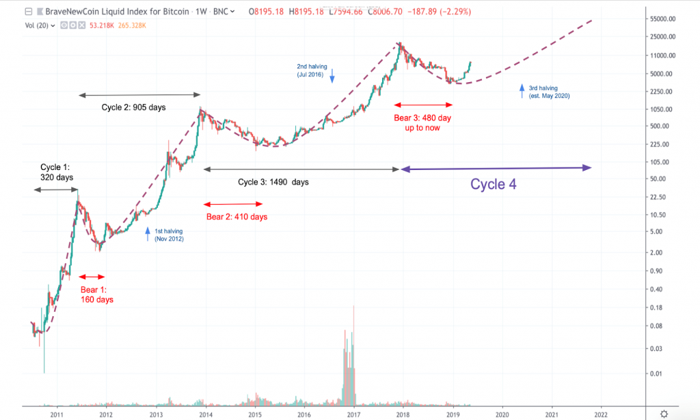Self-spreading malware has emerged as a critical threat within the realm of privacy crypto, particularly impacting the privacy coin Dero. This sophisticated Linux malware campaign exploits vulnerabilities in unsecured Docker APIs, transforming compromised servers into nodes of a widespread cryptojacking network. Reports indicate that the malware infects running containers and siphons off valuable system resources to mine Dero, raising significant concerns among cryptocurrency users and security experts alike. What makes this attack particularly insidious is its ability to operate without a central command server, making it difficult to stop once initiated. As the number of exposed Docker APIs continues to rise worldwide, the need for robust security measures in the cryptocurrency space has never been more urgent.
The discussion around self-replicating malware has captivated the tech community, especially as it relates to decentralized networks involved in privacy-focused cryptocurrencies like Dero. This kind of malicious software, known for its capacity to propagate autonomously, is increasingly found exploiting weak points in Docker infrastructure. Cybersecurity experts are particularly concerned about malware campaigns that engage in cryptojacking, leveraging compromised systems to mine digital assets effectively. The intricate nature of these threats highlights the duality of cutting-edge technologies and the vulnerabilities they can introduce. Furthermore, as organizations deploy applications through Docker containers, understanding and mitigating these risks is essential for protecting sensitive data and infrastructure.
Understanding Self-spreading Malware in the Cryptosphere
Self-spreading malware is a growing concern in the digital landscape, particularly within the cryptocurrency sector. This type of malware can rapidly replicate itself across networks, often without the need for human intervention. In the case of Dero, a privacy coin leveraging advanced cryptographic technology, newly discovered malware exploits unsecured Docker APIs to infiltrate systems. By taking advantage of these vulnerabilities, the malware allows attackers to remotely mine Dero, siphoning off computing resources while proliferating itself to other systems. This form of automated attack is especially dangerous as it can quickly escalate, creating a vast network of compromised servers.
As the adoption of cryptocurrencies continues to rise, the risks associated with self-spreading malware also increase. More organizations are utilizing Docker for containerization, making it essential to secure Docker APIs against unauthorized access. The ease of exposure through publicly accessible ports can lead to extensive cryptojacking campaigns, undermining privacy and security in the crypto ecosystem. Furthermore, understanding these threats is critical for developers and users alike, as protecting infrastructure against such sophisticated attacks is a collaborative effort that requires vigilance and proactive measures.
The Implications of Cryptojacking on Privacy Coins
Cryptojacking, particularly in the realm of privacy coins like Dero, poses significant implications for both miners and investors. When a system is compromised and used for mining without the owner’s consent, it can lead to reduced performance and increased costs associated with energy consumption. Additionally, the stolen processing power essentially narrows the competitive landscape for legitimate miners, as they may find their profitability diminished by these rampant, unauthorized mining operations. For investors, this raises questions about the integrity and viability of privacy coins that may be inadvertently supporting such nefarious activities.
Moreover, the negative connotations associated with cryptojacking can diminish the reputation of privacy coins, impacting user adoption and market perception. Although privacy coins are designed to provide anonymity, the association with malware campaigns and cryptojacking undermines the values they represent. A healthy ecosystem hinges on secure and trusted operations; thus, developers must prioritize strong security practices to bolster user confidence and promote sustainability within the market. Addressing malware threats proactively is crucial to ensure the long-term viability and acceptance of innovative crypto solutions like Dero.
Docker APIs: The Gateway for Malware Campaigns
Docker APIs have become a crucial tool in the software development landscape, enabling developers to deploy applications efficiently through containerization. However, when these APIs are not adequately secured, they present a significant vulnerability for cybercriminals. The recent findings by Kaspersky highlight how exposing Docker APIs on unsecured networks can allow self-spreading malware to infiltrate multiple environments, turning them into part of a larger cryptojacking network. As organizations deploy container technologies, they must implement stringent security measures to safeguard against unauthorized access and exploitation.
In addition to basic firewalls and access controls, organizations should consider employing advanced security practices such as monitoring API traffic and implementing intrusion detection systems. By ensuring that Docker APIs are only accessible to authorized personnel and applications, organizations can significantly mitigate their risk of exposure to malware campaigns. In an age where cloud computing and containerization drive innovation, securing Docker APIs should be a priority to protect both customer data privacy and the integrity of cryptocurrency operations.
Kaspersky’s Insights on Malware Trends
Kaspersky’s research sheds vital light on the evolving landscape of malware campaigns, particularly concerning privacy-focused cryptocurrencies like Dero. The cybersecurity firm’s detailed reports showcase trends in self-spreading malware and its techniques, allowing stakeholders to understand better how these threats emerge and propagate. Through identifying key patterns in Docker API exploitation, Kaspersky equips developers and organizations with the insights necessary to strengthen their defenses against such attacks.
By disseminating this knowledge, Kaspersky plays a crucial role in educating the crypto community about emerging threats. Their findings underscore the importance of robust cybersecurity protocols, emphasizing that continued vigilance and regular audits are essential in fortifying defenses. The collaboration between cybersecurity experts and the cryptocurrency industry is necessary to advance protective measures and ensure that users remain safe from the adverse effects of malware.
Strengthening Privacy in the Age of Emerging Malware
As self-spreading malware becomes more sophisticated, the need for robust privacy measures within the cryptocurrency sector grows. Privacy coins like Dero offer users anonymity and security, but when exploited by malicious entities, their purpose can be compromised. This raises an urgent call for the integration of stronger privacy protocols in blockchain transactions and operations. Organizations should prioritize encryption, user authentication, and secure API management to thwart attempts at unauthorized mining and data breaches.
Additionally, enhancing user education on the importance of securely managing their wallets and engaging with reputable services is vital. As cryptocurrency operations become more prevalent, individuals should remain aware of the potential risks and implement proactive security measures to safeguard their assets-digital and otherwise.
Moreover, collaboration between developers and cybersecurity experts can lead to innovative solutions that address both privacy and security in the cryptocurrency ecosystem. Research and development in this space should focus on creating resilient systems that can withstand evolving cyber threats. As we move towards a more decentralized financial environment, protecting user privacy and securing infrastructure will be paramount to maintaining trust and promoting widespread adoption of privacy coins.
The Role of Community in Combatting Malware Threats
In the face of increasing malware threats, the crypto community plays an instrumental role in combatting these challenges. Collective vigilance among developers, miners, and users can significantly enhance the security framework surrounding privacy coins and decentralized technologies. Open-source inspection and collaborative reporting of vulnerabilities can expedite the identification and mitigation of malware infiltrating systems, fostering a culture of proactive defense against cyber threats.
Furthermore, cryptocurrency forums and communities can serve as platforms for sharing knowledge and best practices related to cybersecurity. By leveraging collective expertise and experiences, community members can empower one another to implement stronger security protocols and remain informed about the latest malware campaigns. This spirit of cooperation is essential for developing a robust line of defense against threats like self-spreading malware, ultimately ensuring the sustainability and acceptance of privacy coins such as Dero.
Looking Ahead: The Future of Privacy Coins Amidst Malware Threats
As privacy coins continue to evolve and gain traction, they will undoubtedly face ongoing challenges due to malware threats. In particular, self-spreading malware campaigns that target vulnerabilities in technologies like Docker can compromise the integrity of these digital assets. Nevertheless, the future of privacy coins like Dero hinges on the industry’s ability to adapt and innovate in response to these threats. By embracing a proactive approach to cybersecurity, the cryptocurrency community can secure its future while maintaining a commitment to user privacy.
Investors and developers alike must remain aware of the landscape’s changing dynamics, making it essential to invest in heightened security measures and education initiatives. As the digital economy expands, the stakes rise, and a unified front against malware threats will be critical to preserving the trust and functionality of privacy coins. Emphasizing collaboration, transparency, and adaptability as guiding principles will set the stage for a secure and innovative future in the cryptocurrency sector.
Best Practices for Protecting Against Malware in Crypto
To navigate the complexities of malware threats in the cryptocurrency space, particularly regarding self-spreading malware and cryptojacking, it is crucial to adopt best security practices. Organizations must implement stringent access controls to safeguard Docker APIs and ensure only authorized users have permissions to interact with these interfaces. Regular security audits will help identify potential vulnerabilities and allow for timely remediation, reducing the risk of exploitations that could lead to the compromise of privacy coins like Dero.
Additionally, employing a robust security infrastructure—including firewalls, intrusion detection systems, and consistent monitoring of network traffic—can play a significant role in mitigating risks. Educating users about safe practices when engaging in crypto activities, such as avoiding public Wi-Fi for transactions and being cautious with third-party services, can further diminish the likelihood of encountering malware. By promoting a culture of security, the crypto community can create resilience against malware and protect the integrity of privacy-focused projects.
Regulatory Implications of Malware in the Crypto Space
As self-spreading malware and other cybersecurity threats continue to afflict the cryptocurrency landscape, regulatory bodies are coming under pressure to establish clear guidelines and frameworks. The rise in malware campaigns—especially those targeting privacy coins like Dero—highlights the urgent need for improved compliance standards and security measures in the crypto industry. This aspect has prompted discussions around creating regulations that necessitate stronger security protocols among cryptocurrency exchanges and businesses.
Consequently, these regulations could have far-reaching implications for user privacy protection and data security. Proper legislative frameworks aim to balance the need for innovation in crypto technologies while ensuring that businesses are held accountable for safeguarding user information against malicious attacks. As discussions on policies and compliance continue to evolve, industry stakeholders will need to engage in meaningful dialogues with regulators to shape a safe environment for users and developers.
Frequently Asked Questions
What is self-spreading malware in relation to privacy crypto like Dero?
Self-spreading malware refers to malicious software that autonomously propagates through networks, exploiting vulnerabilities in exposed Docker APIs to infiltrate servers and systems. In the case of the privacy crypto Dero, this type of malware compromises unsecured Docker infrastructures to create a decentralized cryptojacking network, using the hijacked resources to mine Dero without a central command server.
How does self-spreading malware exploit Docker APIs in cryptojacking campaigns?
Self-spreading malware leverages publicly exposed Docker APIs, which are accessible through port 2375, to gain unauthorized access to servers. Once access is obtained, the malware can spawn malicious containers that infect other systems, allowing it to siphon off computational power to mine privacy coins like Dero and further extend its reach across the network.
What risks do self-spreading malware campaigns pose to privacy cryptocurrencies such as Dero?
Self-spreading malware campaigns pose significant risks to privacy cryptocurrencies like Dero by hijacking systems for cryptojacking, which drains resources and may compromise data integrity. The decentralized nature of such malware can lead to widespread damage as it proliferates rapidly, often targeting unprotected Docker environments, thereby undermining user trust in privacy crypto.
Can self-spreading malware affect Docker containers used for privacy crypto mining?
Yes, self-spreading malware can severely impact Docker containers running privacy crypto mining operations. By infecting these containers, the malware can commandeer their computational resources to mine privacy coins like Dero, reducing profitability for legitimate miners and potentially jeopardizing the security of the mining operation.
What steps can be taken to protect against self-spreading malware targeting Docker APIs in crypto environments?
To protect against self-spreading malware, organizations should secure their Docker APIs by restricting access to authorized users only, implementing firewall rules, using secure ports, regularly updating Docker software, and conducting security audits. It’s crucial to monitor for unusual activity related to cryptojacking, especially in environments dealing with privacy cryptocurrencies like Dero.
How does self-spreading malware impact the overall cryptocurrency ecosystem involving privacy coins?
Self-spreading malware impacts the cryptocurrency ecosystem by introducing security vulnerabilities that can discourage investment and usage of privacy coins like Dero. As attackers exploit inadequately secured networks for cryptojacking, the overall perception of blockchain and cryptocurrency security is diminished, thereby affecting adoption and innovation in the sector.
| Key Point | Details |
|---|---|
| Self-spreading Malware | A new Linux malware utilizes unsecured Docker infrastructure to create a decentralized network for mining the privacy coin Dero. |
| Attack Mechanism | Malware exploits publicly exposed Docker APIs to infect servers and siphon resources for mining. |
| Scale of the Attack | Over 520 Docker APIs were publicly exposed on port 2375 worldwide, serving as potential targets for the malware. |
| Source of Information | The report is based on findings from cybersecurity firm Kaspersky. |
Summary
Self-spreading malware represents a significant threat to digital security, as evidenced by its recent emergence in the privacy cryptocurrency Dero. This malware exploits vulnerabilities within unsecured infrastructure, allowing unauthorized access and compromising system integrity. The ability of this malware to spread autonomously enhances the urgency for improved security measures in the cryptocurrency ecosystem.
Self-spreading malware is emerging as a significant threat in the world of cybersecurity, particularly within the realm of privacy crypto like Dero. This malicious software operates by infiltrating unsecured Docker APIs, effectively transforming compromised servers into nodes of a decentralized cryptojacking network that mines Dero. According to recent reports, this malware campaign exploits the vulnerabilities in publicly exposed Docker infrastructure, posing a serious risk to the integrity of digital assets and user privacy. As it silently proliferates, the implications for online security are profound, raising urgent questions about the protection of sensitive information in the ever-evolving crypto landscape. Stay informed as we delve deeper into this alarming malware trend and its consequences for the industry.
The conversation around self-replicating malicious software has gained momentum, particularly in the context of cryptocurrency and privacy solutions like Dero. Often referred to as viral malware, this type of software spreads autonomously by exploiting system vulnerabilities, such as open Docker APIs, which are frequently overlooked. By leveraging these weaknesses, attackers can engage in cryptojacking activities, diverting valuable computational resources for personal gain without the target’s knowledge. This alarming trend underscores the increasing sophistication of malware campaigns, necessitating heightened awareness and robust security measures within the cryptocurrency ecosystem. As we explore this topic, the dual challenges of safeguarding digital currencies while maintaining user privacy cannot be overstated.














